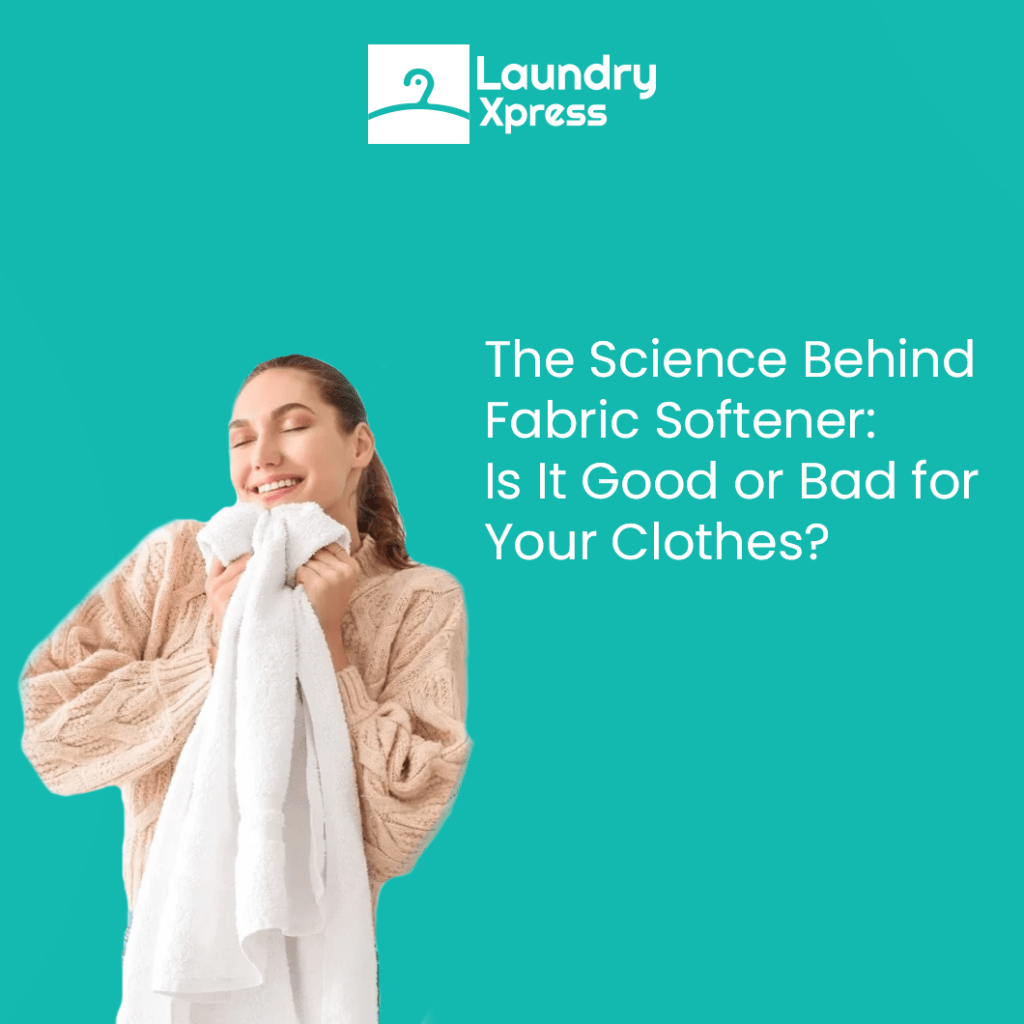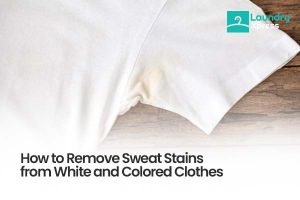When it comes to laundry, fabric softener tends to spark debate. Some people swear by its ability to make clothes feel incredibly soft and smell delightful, while others wonder if it’s really necessary or even beneficial for fabrics over time.
So, should you use fabric softener, or is it time to ditch this laundry staple altogether? In this guide, we’ll reveal its true impact on your clothes, and help you decide if it’s a must-have in your routine—or just a costly extra. Let’s separate the facts from the fluff and uncover the truth about this divisive product!
What Is Fabric Softener, and How Does It Work?
Fabric softener, commonly referred to as fabric conditioner, is a product available in liquid form that aims to reduce static, soften fabrics, and impart a pleasant fragrance to your laundry. Let’s have a look at the laundry softener guide to find out how fabric softeners work.
It functions by applying a thin layer of chemical compounds, typically composed of oils, surfactants, and fragrances, which help make fabrics feel smoother and less clingy.
How fabric softeners work is represented at a molecular level in the interaction between surfactants and fabric fibers. Fibers of different kinds such as cotton, wool, and synthetic materials have unique structures that react differently with surfactants.
Cotton fibers, for instance, have a wax film that can be destroyed during the washing process and be rough and stiff. The fibers in which surfactants from fabric softeners are coated replace the lost wax and create a layer that is smooth and lubricating, making the cotton fabric soft and flexible.
Wool fibers, on the other hand, are covered with scales on the surface which cause itching or irritation when they touch the skin.
Synthetic textiles such as polyester and nylon are known to be less absorbent than natural fibers and they can even get charged with static electricity. Surfactants in fabric softeners can instantaneously neutralize the static charge and this way helps to wrap these materials with a softer and more comfortable texture.
Pros and Cons of Fabric Softener
Although this may seem advantageous, the fabric conditioner effects on clothes can differ based on the type of fabric, the washing machine used, and the frequency of application.
Pros:
Fabric softener has become a common item in many homes for good reason—it offers clear advantages that leave laundry feeling fresh and cozy.
- Softer Clothes
The most noticeable benefit of fabric softener is how it changes the feel of fabrics. Clothes, towels, and bedding end up softer and more pleasant to touch.
- Less Static Cling
Fabric softener cuts down on the static electricity that often builds up as clothes dry. This means your clothes won’t stick to each other or to your body when it’s dry or cold outside.
- Fresh Scents
Many fabric softeners contain scents that make clothes smell clean and fresh for a long time. This can make doing laundry more enjoyable and help you go longer between washes for things like blankets and curtains.
- Fewer Wrinkles
By cutting down on friction and helping fabrics move more , fabric softeners can stop wrinkles from forming. This makes clothes easier to iron or wear right after they come out of the dryer.
- Some Fabrics May Last Longer
Fabric softeners can help certain materials, like cotton, hold up better over time. They cut down on the wear and tear that happens when clothes rub against each other in the wash and dryer. This means your clothes might stick around in your closet for a bit longer.
Cons:
- Build-Up Over Time
Frequent use can lead to a residue build-up on clothes, reducing their breathability and absorbency, particularly for towels and activewear.
- Reduced Absorbency
A product, such as a fabric softener, on the other hand, can decrease the ability of fabrics like microfiber, towels, or sports clothing to take away moisture, hence, it may be less effective.
- Not Ideal for All Fabrics
The incorrect use of them can deteriorate some fabrics like silk, cashmere, and some synthetics in the long term.
- Environmental Concerns
Many fabric softeners contain non-biodegradable substances that can be hazardous to the environment if they are thrown in the bin and get washed down the drain.
- Allergies or Sensitivities
The fragrances and chemicals in fabric softeners can irritate sensitive skin or cause allergic reactions in some individuals.
How to Use Fabric Softener Correctly
If you decide to keep using fabric softener, follow these tips to minimize potential drawbacks:
- Check Care Labels
Always read the care instructions on your clothes, particularly the delicate or moisture-wicking fabrics.
- Use the Recommended Amount
Excess usage of fabric softener can cause grime to build up. Just use what is advised on the product label.
- Dilute Before Adding
In case your fabric softener dispenser is unavailable on the washing machine, mix it with some water first then put it in to avoid a concentrated deposit.
- Skip Certain Items
Staying away from fabric softeners for towels, microfiber, and sportswear is a good way to prolong their usage.
The Environmental Impact of Fabric Softener
Fabric softener’s environmental impact is often overlooked in the debate about “should I use fabric softener?”. Numerous products contain chemicals that are not easy to break down, they pollute the water system and are harmful to the life of the aquatic animal. Also, the plastic packaging of most fabric softeners is contributing to the global waste.
If you’re concerned about the fabric conditioner effects on clothes and its impact on the planet, switching to eco-friendly options like vinegar or wool dryer balls is a smart choice.If households want to reduce their ecological footprint, then choosing some substitute like vinegar, or wool dryer balls is the right way to go.
Is Fabric Softener Necessary?
Laundry Xpress main priority has always been their customer’s personal comfort and laundry needs. For the best and pleasant smell, fabric softener may be considered a beneficial and practical option by us.
As a result, when you wonder about “Is it good or bad for your clothes”, keep in mind the pros, cons, and substitutes to ensure you make the best choice for your clothes, your skin, and the planet.





